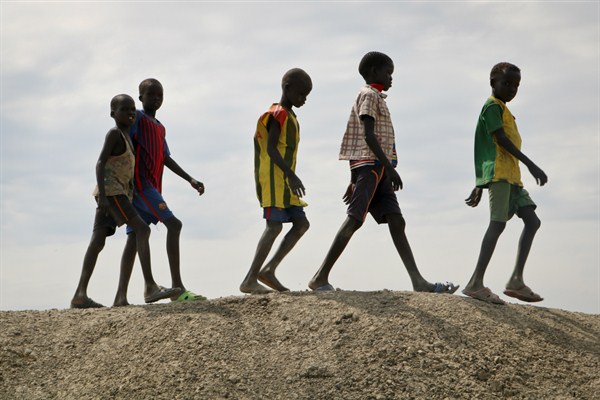South Sudan’s five-year civil war was supposed to end with the signing of a revitalized peace deal last year, but violence continues and the humanitarian situation remains bleak. The government and opposition now have five months to implement the agreement and form a transitional government, or risk another unraveling.
On paper, the peace deal signed by South Sudanese President Salva Kiir and former Vice President-turned-armed opposition leader Riek Machar on Sept. 12 halted a conflict that has claimed an estimated 383,000 lives and left most of the population facing malnutrition and severe food insecurity. However, a very similar peace deal in 2015 between the same leaders collapsed in July 2016 as four days of violent clashes devastated the capital, Juba, and forced Machar to flee the country. After making his way to the Democratic Republic of Congo, Machar spent the next two years under house arrest in South Africa.
During that time, the war only worsened. Armed groups proliferated, humanitarian conditions grew even direr, and both government forces and the opposition Sudan People’s Liberation Army-In Opposition, or SLPA-IO, committed atrocities with impunity. South Sudanese citizens greeted the new agreement with joy last fall, although many analysts doubted that it would last. Yet despite ongoing skepticism, October and November saw some positive indications that the deal may hold.

